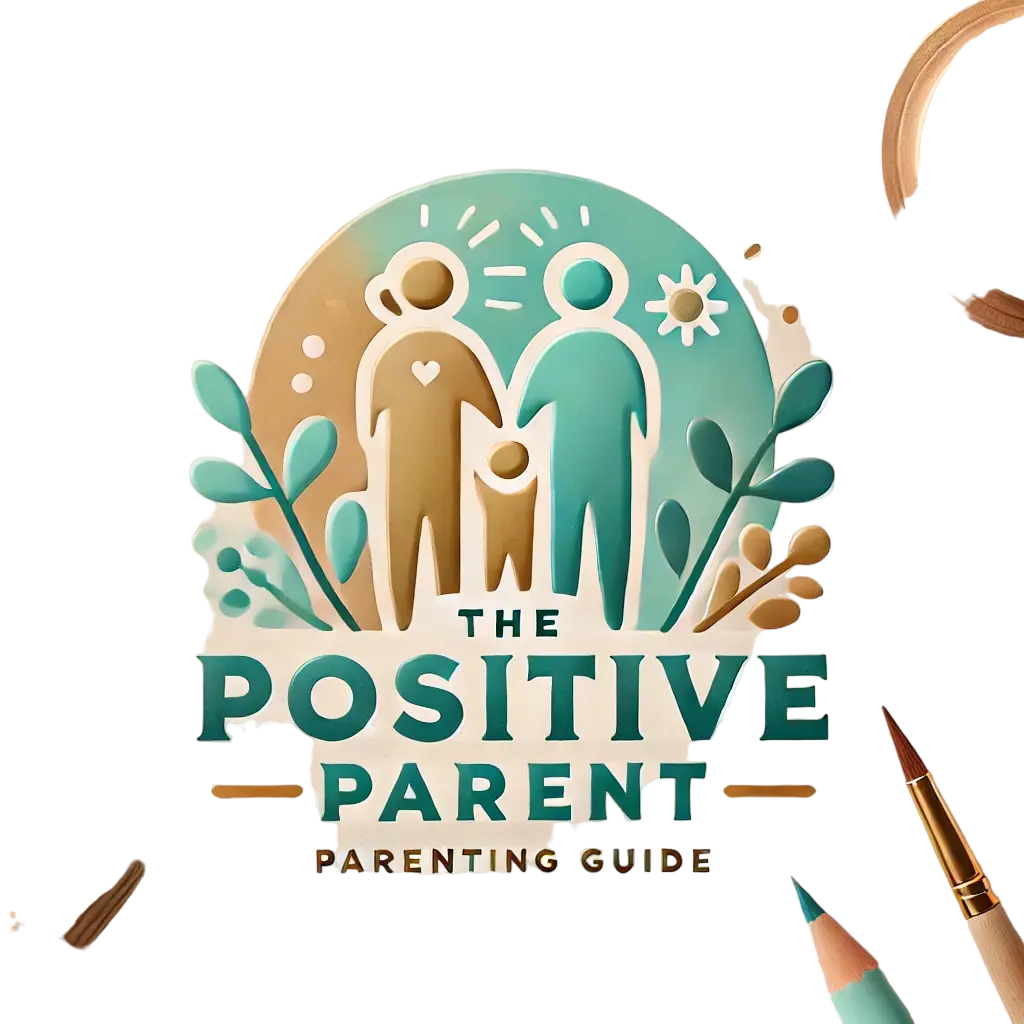Working Parents Who Have a Strong Bond With Their Kids Do These 10 Things
Category
Categories

Working Parents Who Have a Strong Bond With Their Kids Do These 10 Things
Being a working parent can often lead to feeling overwhelmed, especially when trying to balance work commitments, deadlines, and the never-ending list of tasks at home. Managing such a hectic schedule can make it difficult to stay connected with your children. However, creating strong bonds is not just about the quantity of time spent together but also about being fully present in those precious moments.
With the guidance of experts, we will explore 10 actionable strategies for building a strong connection with your children as a working parent. Additionally, we will provide tips to help you overcome any unnecessary feelings of guilt.
Balancing Work and Family Life Challenges
Striking a balance between work and family time can be quite challenging for many Positive Parents. The struggle often revolves around the limited time available for spending with their children, especially when dealing with packed schedules full of various commitments and after-school activities.
“A common concern I often hear is that one child is at a practice or tutoring session, so the entire family cannot be together at once,” states Amber Diamond-Green, MA, LCMHC, NCC, a mental health therapist and Clinical Health Director at Mathews Counseling in North Carolina. She further adds, “This results in a rushed evening routine to prepare for the next day and bedtime.”
The constant juggling of responsibilities may make Positive Parents feel like they are only experiencing brief, fleeting moments with their children. However, there are numerous small, practical ways to authentically connect with kids, even amidst the chaos of work and life demands.
10 Practical Ways to Connect With Your Kids as a Working Parent
Here are ten easy methods to strengthen the bond with your children while managing work responsibilities:
1. Utilize Travel Time to Engage in Meaningful Conversations
The Positive Parent can take advantage of commuting time, whether long or short, to connect with their children. Whether dropping them off or picking them up from school or extracurricular activities, this time can be used for meaningful conversations.
Instead of simply asking about their day, Diamond-Green suggests asking open-ended questions to deepen the connection with your child. These types of conversations, even in short bursts, help parents better understand their child’s experiences and emotions.
2. Prioritize Family Meals, even if it’s only once or twice a week
Gathering the entire family around the dinner table may pose challenges, but aiming for at least one or two meals per week can have a significant positive impact.
According to Diamond-Green, “[Dinner time] can be a really nice, special time to connect with kids.” It offers a chance to bond, discuss your day, and engage in meaningful conversations—especially if you steer clear of screens and electronics.
If dinner is not feasible, consider starting the day with a nutritious family breakfast to share excitement about the upcoming day.
3. Engage in enjoyable family activities together
“Connection doesn’t have to be just through talking and conversation,” states Diamond-Green. “It’s also in the time spent together.”
Some examples she recommends include participating in board games, watching movies (deciding whose turn it is to choose), going on family strolls, engaging in a game of trivia, or having pizza on Friday night.
These shared moments, even if short, can promote meaningful bonding time.
4. Incorporate meaningful moments into bedtime routines
For many Positive Parents, bedtime routines can sometimes feel mundane, just going through the motions of getting ready for bed.
Instead of rushing through bedtime, Diamond-Green suggests seizing the opportunity to create special moments with your children before they go to sleep. Here are some ways to engage with your kids during those precious moments before bedtime:
“Even those brief moments can be incredibly valuable and comforting for our kids, fostering a sense of connection and security,” Diamond-Green explains.
5. Allocate a Set Aside Family Time Every Week
Whether it’s a midweek stroll, weekend movie night, or Sunday brunch, it’s beneficial to set aside a special “family day” each week that takes precedence over other obligations.
Even if it’s only a brief period, having dedicated family time is an excellent way to foster genuine connections without the stress of a hectic agenda or competing demands.
6. Implement aspects of “slow parenting” if needed
When juggling work, school, social events, and extracurricular activities, the chaos can become overwhelming. It’s okay to step back and consider adopting elements of slow parenting to alleviate some of the stress.
Slow parenting is a strategy that promotes taking a break from the constant pressure to plan numerous activities for your children, especially if you both feel exhausted by the weekend.
Diamond-Green advises parents to have conversations with their children about what activities matter most to them at the moment. This open dialogue and a willingness to cut back on overscheduling can shift the focus to quality family time instead of always having a packed schedule.
7. Be intentional about giving your full attention when you can
As any positive parent knows, the time between school pick-up and bedtime can be pretty crazy. But if you can, try carving out a little time (even just a few minutes!) to be fully present with your child, free from distractions.
For instance, keep your phone away, sit at their eye level, make eye contact, and truly listen to what they’re saying without interrupting or multitasking. You can inquire about a new game they enjoy playing, what amused them that day, or how they are feeling in that moment.
“It’s allowing yourself to be detached from the rest of the world, from social media and things like that, and really giving your kids your full attention,” says Diamond-Green. “It’s a big deal, even if it’s only 20 minutes. It’s about the quality of engagement you have.”
8. Avoid taking work calls right when you get home
Small actions can have a significant impact! By ending a phone call before entering your home, you demonstrate to your children that they are your top priority, emphasizing the importance of family time upon your return.
According to Diamond-Green, it’s better to spend an extra 15 minutes in your car upon arrival than to enter the house without giving your family your full attention. This way, you can fully enjoy the warm hugs and excitement waiting for you at the door!
While there may be instances when immediate disconnection is not possible, that’s perfectly fine! The essential thing is to make sure your children understand that once you’re home, they are the main focus of your attention, even if it takes a moment to wrap up a phone call.
9. Take a walk together outdoors
Walking outdoors is a fantastic way for The Positive Parent to bond and relax, supported by scientific evidence. A study in Science Advances revealed that being in nature can lower mental stress levels and enhance feelings of happiness and positivity.1
If the weather allows, consider going for a stroll with your children after dinner or, if you prefer mornings, before school. Disconnecting from digital devices and immersing in nature can create focused, meaningful, high-quality interactions and dialogues.
10. Schedule individual quality time for multiple children
If you are a Positive Parent with more than one child, dedicating one-on-one time with each child is a straightforward yet impactful way to enhance your relationship and ensure they feel seen, heard, and appreciated.
When possible, aim to allocate specific time slots for each child on a monthly basis, whether it involves a full day or just 30 minutes in the evening. This practice can aid in understanding their individual needs better while fostering trust and a stronger sense of connection.
Embracing Freedom from Guilt as a Parent
Being a parent while juggling work responsibilities can bring feelings of guilt for not being able to spend ample time with your children. However, it’s essential to realize that you are making the best choices to support your family, and there is no need for guilt in that decision.
The key is not the quantity but the quality of time spent with your kids. According to Diamond-Green, what truly matters is providing your children with meaningful interactions rather than simply clocking in hours.
Ultimately, what your children need is your dedication to creating valuable moments of connection, whether through adjusting routines, going for walks, or simply being fully present in important moments. This focused attention and presence in significant instances are what truly fulfill children’s need for care and attention, even if you can’t be there around the clock.
Nature and mental health: An ecosystem service perspective. Science Advances. 2019.



